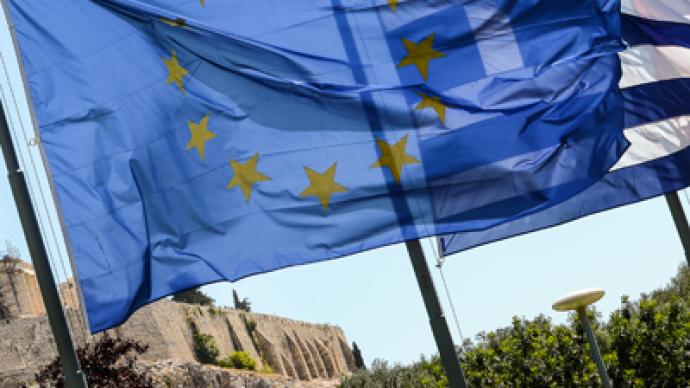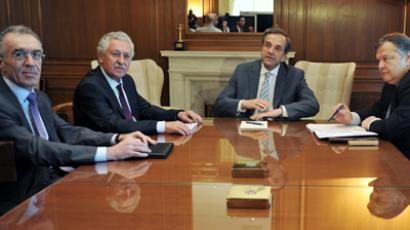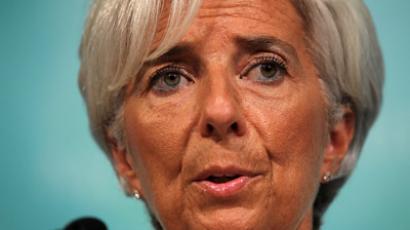Greece recession will deepen – Greek PM

Greece may suffer a much deeper recession this year with the economy expected to shrink more than forecast by the crisis-hit central bank, says the country’s prime minister, Antonis Samaras.
He expects the economy to shrink by 7 per cent compared to the 5 per cent forecast by the Bank of Greece. This would represent the country’s deepest recession since the 1930s.Inspectors from the EU-International Monetary Fund-European Central Bank troika have returned to Athens in another effort to stabilize the second Greek bailout. They are expected to complete their debt-sustainability analysis next month. The visit comes amid renewed talk about the country leaving the eurozone.The lenders will discuss the amount of new emergency loans needed to help Greece balance the books in the light of delayed reforms and the worsening recession.Economists calculate that Greece may need a third rescue package worth up to €50 billion.EU officials said on Tuesday that Greece is unlikely to be able to repay what it owes and further debt restructuring is likely to be necessary, Reuters reports. The cost, they say, would have to fall on the European Central Bank and eurozone governments.The second major rescue package totaling €130 billion was agreed in March, with strict conditions attached that forced Greece to cut debt and spending.The IMF said it was "supporting Greece in overcoming its economic difficulties" and would work with the country to get it "back on track." However, reports over the weekend suggested that the IMF would refuse calls for further aid. Meanwhile Greece is expecting another high-profile visitor this week. The European Commission president, Jose Manuel Barroso, is planning his first visit to the country since 2009."The purpose of the meeting is to meet Mr Samaras and discuss the overall economic situation in Europe and, in particular, in Greece," Mr Barroso's spokesman said. Failure to secure the €31billion of loans could force Greece to exit the euro and return to the drachma “Greece should have been allowed to exit some time ago. It would have been a lot less painful", says Marco Pietropoli, a financial advisor and wealth manager. "But I think the Greek exit was delayed until the French and German banks could actually handle it. The banks had time to restructure and handle the cases from the Greek default" he said.Greece has promised to reduce its budget deficit to below 3 per cent of annual national income as measured in Gross Domestic Product (GDP) by the end of 2014Under the terms of its international loan agreement with the troika, Greece has promised to reduce its total debt to 120 per cent of GDP by 2020.














